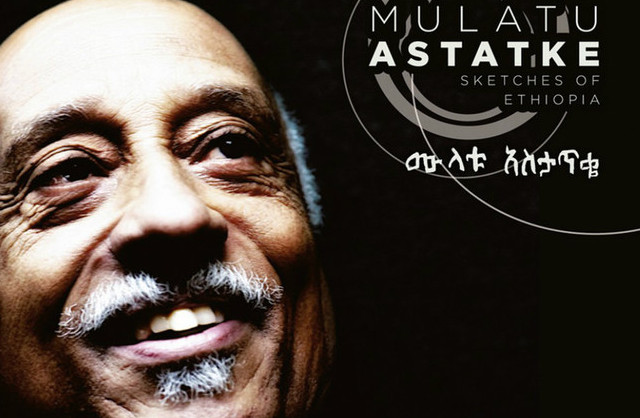Chicago Reader
Ethio-jazz pioneer Mulatu Astatke returned to action recently with the release of Sketches of Ethiopia (Jazz Village), an impressive outing—cut with some of London's best improvisers—that embraces "jazz" as more than just flavoring. It's his first album with international distribution. His backing band here is dubbed the Steps Ahead Band, which thankfully has nothing to do with Michael Brecker's fusion band of the same name—this one includes folks like bassist John Edwards, trumpeter Byron Wallen, and pianist Alexander Hawkins. The record opens with one of its most traditional-sounding tracks, "Azmari," which was written by Astatke's longtime colleague and collaborator, Boston reedist Russ Gershon of Either/Orchestra fame. The knotty track is graced by the leader's crystalline vibraphone and the brittle twang of traditional Ethiopian string instruments like the krar and masinko (played, respectively, by Messale Asmamow and Idris Hassun). From there on out the album stretches stylistically, liberally borrowing this and that.
"Gamo" is one of several songs featuring the gruff singing of Tesfaye, but the sweet-toned kora licks of Kandia Kora lend it a pan-African air. "Hager Fiker," which is a traditional tune from Astatke's homeland, gets a heavy jazz treatment, with a deep upright-bass groove from Edwards, percolating hand percussion, and a lyric, halting vibe solo from the leader, as well as dueling improvisations between James Arben on flute and Yohanes Afwork on end-blown wood instrument the washint, regularly prodded by sleek, swerving horn arrangements. You can check it out below.
"Gambella," another song with Tesfaye, pushes toward a spiritual jazz vibe, while "Assosa Derache" is decidedly moody and subdued, reaching toward a brief post-Miles Davis spaciness in its final minutes before resuming a head-nodding groove. (I don't think the album title's closeness to the Davis/Gil Evans collaboration Sketches of Spain is accidental.) The album stumbles on "Gumuz," which gives a glossy contemporary treatment to another traditional pieces from the titular Ethiopian tribe—the treacly electric keyboards and the George Benson-styled guitar interjections of guest Jean-Baptiste Saint-Martin sap all the life out of the performance. The limpid cello that opens "Motherland Abay" amid cascading piano, oboe, and kora gives the piece an almost Chinese-sounding serenity (partly due to the pentatonic scale), but then a soulful bass ostinato opens up and Wallen takes a lovely Harmon-muted solo to clearly summon the spirit of Davis. The album closes with a collaboration with the great Malian singer Fatoumata Diawara, and her presence—she cowrote the song "Surma" with Astatke—pulls the song toward West Africa.
http://www.chicagoreader.com


No comments:
Post a Comment